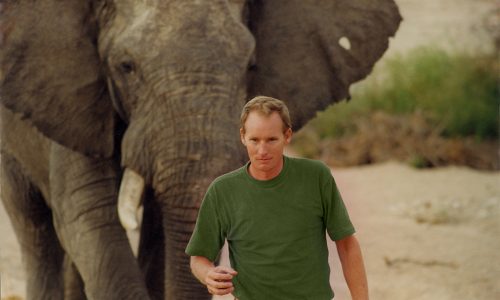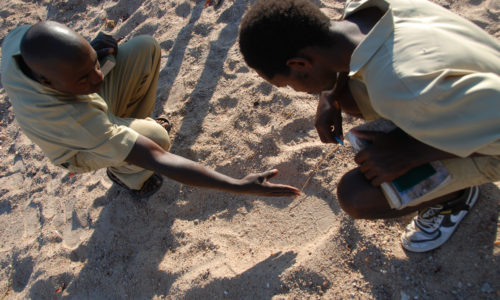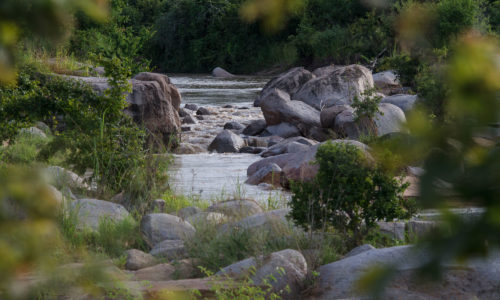Mwagusi Safari Camp is situated in Ruaha National Park, Tanzania’s largest National park situated in the southern circuit of Tanzania.
Started initially as a temporary fly-camp, Mwagusi has grown and developed over the years into a uniquely designed camp with a friendly and peaceful atmosphere. Each element of the camp has been carefully thought-out and designed to be original, unique and different from any other, with personal touches and a close attention to detail.
The camp is built almost entirely from organic natural materials with guests being treated to a “unique” tented safari experience. Each en-suite tent is comfortably secured under a cooling thatched roof and nestled snuggly into the sandy banks of the Mwagusi River.

Chris Fox, owner and manager, was born in Tanzania and is passionate about Africa, the park and wildlife. His knowledge of Ruaha extends back to long holidays spent camping in this area since the beginning of the National Park.
Chris’s parents used to camp and wander the area mostly on foot since even before it became a National Park.

Mwagusi Camp believes strongly in the in-house and on-site training of it’s safari guides. A full-time guide instructor is employed at the camp and an intensive guide training programme is in place with new recruits being taken in every year. It is a multi-faceted learning approach with the aim of equipping it’s trainees with a variety of skills that will make them well suited to various facets of the tourism and hospitality industry in Tanzania.

FCWCT oversee a rainforest conservation project in Mufindi, preserving native species, protecting it from damaging agricultural practices, and ensuring water security. The project currently focuses on the facilitation of ongoing ecological monitoring by deploying locally trained anti-poaching units into the scarp forests of Mufindi.


